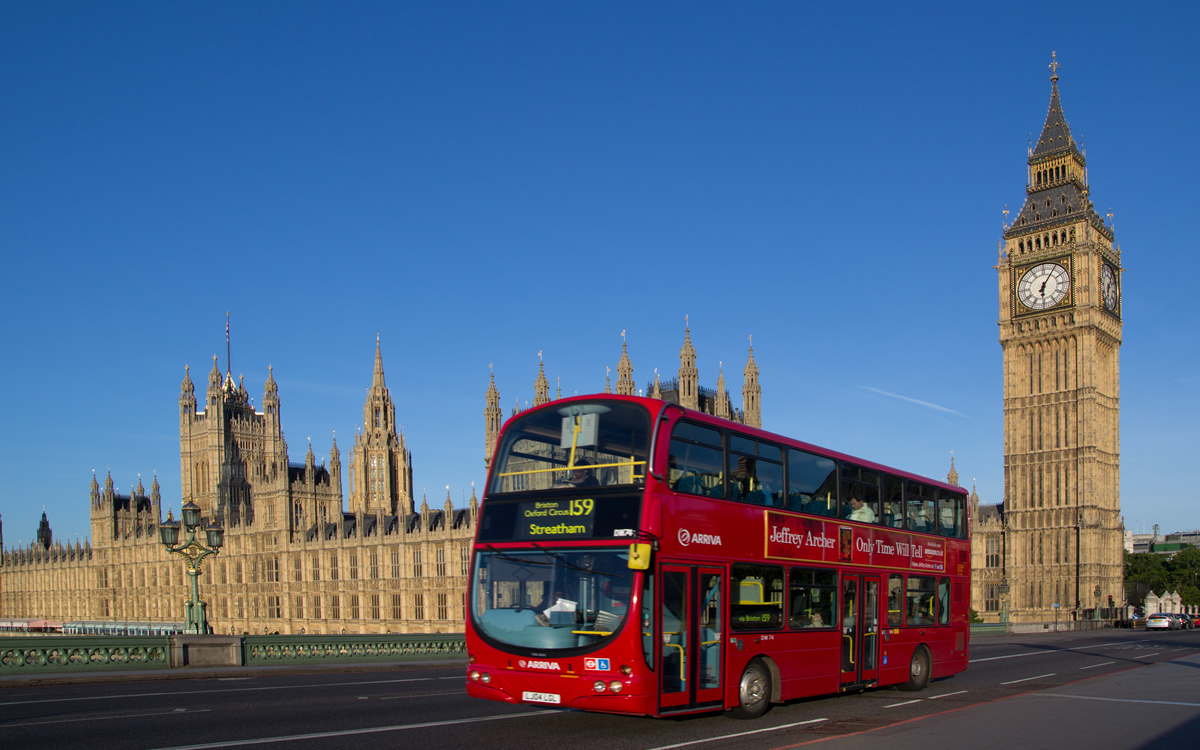World
Out in the World: LGBTQ news from Europe and Asia
Marriage equality advances in Liechtenstein, Thailand

UNITED KINGDOM

BY ERIN REED | Following a recent decision in England by the National Health Service to stop prescribing puberty blockers for transgender youth, former U.K. Prime Minister Liz Truss introduced a bill that would outlaw gender-affirming care for trans youth. The bill would also eliminate any recognition of social transition and would define sex to exclude trans individuals in the Equality Act. Currently, trans youth can still access gender-affirming care through private clinics. However, Truss’ bill ran into trouble on Friday when, instead of being debated, MPs spent hours deliberating over ferrets and pet names, exhausting the available time and preventing the bill from being heard.
As of this week, the National Health Service in England has declared that it will no longer permit trans youth to receive puberty blockers for gender dysphoria. Although the announcement sparked significant public backlash, its practical impact was somewhat mitigated by the extreme waitlist for care, which exceeds five years. Only a hundred trans youth had been prescribed blockers of the thousands waiting for an appointment. Importantly, the decision does not affect care through clinical research trials and does not affect private clinics — a route many parents had already pursued due to the surging wait times at the limited number of NHS clinics providing care.
Truss introduced a bill aimed at curbing that latter route of obtaining care. The proposed legislation would criminalize the prescription of gender-affirming care to trans youth. It seeks to prevent “the recognition of gender inconsistency in children,” which is defined as “referring to a child with language that is inconsistent with their sex” and “treating a child in a manner that is inconsistent with their sex.” However, the bill does not specify how boys and girls should be treated in accordance with the law. Additionally, it proposes amendments to the Equality Act to define sex to exclude trans individuals and end protections in bathrooms and other similar spaces.
See these lines from the bill here:

However, when the time arrived to debate bills, MPs diverted their attention to hours of discussions about ferrets and pet animal names within the context of an animal welfare bill. In one notable interaction, Labour MP Sarah Champion addressed Labour MP Maria Eagle, remarking humorously on the frequent mentions of ferrets:
Champion: “I am very interested in my honorable friend’s, well, key mention of ferrets at every opportunity in this debate. I’d like to put on record that my brother had a ferret called Oscar.”
(Laughter)
Eagle: “Well she has that now on the record. I don’t know really what else to say about that except that I’m sure that Oscar brought her brother great joy, and that’s what pets do, and I’m sure there are many other ferret owners who might attest to the same thing.”
You can watch the exchange here:
In another exchange, even some conservatives appeared to be in on it, such as MP Mark Spencer, who spoke at length listing off of many pets that had been named and put on the record.
Spencer: “I am confident that Members of all parties will agree that animals have been of great support to individuals and families, particularly during COVID-19, when my pets were certainly of great support to me. Pets often help to keep people sane when they are under pressure in their everyday pursuits, so it would be remiss of me not to put on the record the names of my three dogs, Tessa, Barney and Maisie, and the name of my cat, Parsnip. There has been a proud tradition this morning of mentioning various pets, including: Harry, George, Henry, Bruce, Snowy, Maisie, Scamp, Becky 1, Becky 2, Tiny, Tilly, Pippin, Kenneth, Roger, Poppy, Juno, Lucky, Lulu, Brooke, Lucy, Marcus and Toby, who are the dogs; and not forgetting Perdita, Nala, Colin, who is sadly no longer with us, Frank, two Smudges, Attlee, Orna, Hetty, Stanley, Mia Cat, Sue, Sulekha, Cassio, Othello, Clapton, Tigger, who is sadly no longer with us, and Pixie, who are the cats.”
The lengthy exchanges on pet names and ferrets ran the time out, and as such, the bill targeting trans people could not be heard. The lengthy discussion, which has since been referred to as a filibuster, echoes filibusters that have occurred in the U.S. to kill similar legislation, including recently in West Virginia on a bill that also would have defined sex in an identical way.
The exchanges provided a ray of hope for trans residents in England, which has been beset by anti-trans politics in recent years. Likewise, it was a sign that the Labour Party, which has previously been seen as “backsliding” on trans rights, has not completely abandoned its transgender constituents. Though the bill is not officially dead, it has been placed at the bottom of the priority list for March 22, meaning it almost certainly will not be debated, with government sources calling the bill “unworkable.”
For those who advocate for trans rights, however, the ferret has become “an overnight symbol of trans resistance” and a sign that anti-trans politics may be reaching their limit even in the U.K.
IRELAND

BY ROB SALERNO | The Irish people delivered a major rebuke to the political establishment by voting overwhelmingly against a pair of constitutional referendums that had been endorsed by all parties which would have amended language in the constitution that says a woman’s place is in the home, and that families are based on marriage.
The government had held the referendum on International Women’s Day, March 8, in a symbolic move, and turnout was measured at 44.4 percent. Results were announced the following day.
Ireland’s gay prime minister, Leo Varadkar, accepted defeat Saturday.
“It was our responsibility to convince the majority of people to vote ‘yes’ and we clearly failed to do so,” Varadkar said.
The first question, which was defeated 67 percent to 33 percent, asked voters to add the words “whether founded on marriage or on other durable relationships,” to the constitution’s definition of “family,” in order to be more inclusive of diverse family types.
The second question, which was defeated by a similar margin, as voters to delete a clause that says “the State recognizes that by her life within the home, woman gives to the State a support without which the common good cannot be achieved. The State shall, therefore, endeavor to ensure that mothers shall not be obliged by economic necessity to engage in labor to the neglect of their duties in the home.”
Critics say the language promotes sexist gender stereotypes. The revised language would have used gender-neutral language to recognize “the provision of care, by members of a family to one another.”
Advocacy group LGBTQ Ireland had called for people to vote “yes” to both referendums, “so all children and families, including LGBTQ families, are recognized equally in the constitution.”
But a persuasive “no” campaign had arisen that alleged the revision would have struck women’s privileges and rights. Forces aligned against the referendum included some progressive and feminist groups that alleged the proposed language was unclear and lacked consultation.
Irish voters have in recent years approved a number of progressive reforms to their constitution, including streamlining the divorce process in 2019, legalizing abortion and decriminalizing blasphemy in 2018, and legalizing same-sex marriage in 2015.
LIECHTENSTEIN

BY ROB SALERNO | The tiny principality of Liechtenstein got one step closer to full equality for LGBTQ people as its parliament approved a bill to legalize same-sex marriage with a 24-1 vote, bringing a years-long process nearly to a close.
Local LGBTQ advocacy group FLAY expressed gratitude to members of Landtag, the Liechtenstein parliament, for advancing the law last week.
“Thank you for 24x ‘yes’ in the Landtag,” the group posted to its Facebook page.
“FLay the association for the queer community in Liechtenstein is very happy that 24 out of 25 deputies in parliament voted in favor on today’s first reading. Keeping in mind the completely blocked situation only 3 years ago, the denial of our government for participating any public discussion, we can be more than proud and happy on our successful steps towards the legitimation of the civil marriage for all,” Stefan Marxer, a FLay board member told the Washington Blade in an email.
The marriage bill is expected to pass second reading before the summer parliamentary break, and come into effect by Jan. 1, 2025, unless a referendum is called on the issue.
The tiny country of about 40,000 people, about the size of D.C., has made major progress on advancing LGBTQ rights in the last decade, though the International Gay and Lesbian Association-Europe ranked the country 38th among 49 European countries in its annual survey of LGBTQ rights on the continent last year.
Liechtenstein has allowed same-sex couples to form registered partnerships with limited rights since 2011. The registered partnership law was subject to a referendum after gay rights opponents collected more than 1,000 signatures demanding it. The law was approved by voters 69 percent to 31 percent.
A same-sex couple had sued the state seeking the right to marriage in 2017, but ultimately lost when the state court ruled that the ban on same-sex marriage was not unconstitutional. However, the court did find that the law banning same-sex couples from adopting was unconstitutional and ordered the country to amend the law. It eventually did so last year.
Discussion of marriage equality began in earnest in Liechtenstein after neighboring Switzerland passed its same-sex marriage law in its parliament in 2020.
One obstacle was the prince, who wields significant executive authority in Liechtenstein compared to other European monarchies. In 2021, Prince Hans-Adam II said that while he supported same-sex marriage, he would not support adoption rights. That obstacle seemed to disappear when the state court ordered the government to legalize full adoption rights. By 2022, Hans-Adam’s son Alois, who governs as regent, told a magazine that same-sex marriage was “not a problem.”
The Catholic Church had also intervened, with former Archbishop of Liechtenstein Wolfgang Haas leading a campaign against the bill and cancelling a traditional service at the opening of last year’s Parliament in protest. Haas retired last autumn.
Despite broad agreement among legislators, the same-sex marriage law has taken a slow path through Parliament. In November 2022, Parliament voted 23-2 asking the government to bring forward a same-sex marriage bill. The government held a three-month-long public consultation on same-sex marriage last year before putting the bill on the agenda for Parliament’s March 2024 meeting.
Under the marriage bill, the country will stop registering new partnerships, and people in partnerships will have the option of converting them to marriages or keeping them as they are. All other rights will be equalized.
Liechtenstein is the last German-speaking country to legalize same-sex marriage. Around the world, 37 countries have legalized same-sex marriage, including 21 countries in Europe. The most recent country to legalize same-sex marriage is Greece, and Thailand is expected to pass a same-sex marriage law later this year.
JAPAN

BY ROB SALERNO | Two courts ruled this past Thursday that Japan’s ban on same-sex marriage is unconstitutional, increasing pressure on the government to legalize it.
District courts have been weighing same-sex marriage since several coordinated cases were filed across the country in 2019. Along with Thursday’s ruling from the Tokyo District Court, five district courts have ruled that the ban on same-sex marriage was unconstitutional, while one court has upheld the ban. A seventh district court case was filed last month.
But on Thursday, the Sapporo High Court delivered the first ruling on same-sex marriage at the appellate level, and same-sex couples won there, too.
So far, all courts have dismissed claims for monetary compensation.
It’s likely that all of the cases will end up at the Supreme Court.
In a statement released after the ruling, the plaintiffs’ lawyers called on the government to act swiftly to protect their rights.
“I would like to reiterate that this shows that there is no time left for legal reform. The government should take seriously this judgment that found this provision to be unconstitutional … and promptly amend the law to allow marriage between same-sex couples,” the statement says.
Under Japan’s legal system, courts rarely invalidate or amend laws that are ruled unconstitutional, leaving that to the legislature.
But Japan’s national government has long been cold to LGBTQ rights. Last year, queer activists had hoped that the government would finally pass a long-demanded anti-discrimination bill, but by the time it was put before the legislature, it had been watered down to a bill that only calls on the government to promote understanding of LGBTQ people.
At the local level, queer activists have seen greater success. Twenty-nine of Japan’s 47 prefectures, as well as hundreds of municipalities, have enacted partnership registries for same-sex couples that at least afford some limited rights.
THAILAND

BY ROB SALERNO | Same-sex marriage could soon be a reality in the Southeast Asian country, as a bill to legalize cleared its first test in the legislature Thursday.
A committee set up by the House of Representatives to examine the bill approved it, setting it up for a final vote in the House on March 27. After that, it will need to be approved by the Senate, which is dominated by appointees of the former military junta that ruled the country until 2017. It is expected that the bill will pass into law by the end of the year.
The proposed bill gives same-sex couples equal rights to married heterosexual couples, including in inheritance, tax rights and adoption.
Same-sex marriage and LGBTQ rights generally have become a major political issue in Thailand in recent years, with queer people becoming increasingly visible and demanding greater equality.
Parties promising to legalize same-sex marriage and promote LGBTQ rights were the major victors of last year’s election, although the leading party was controversially disqualified from forming a government due to its support for reforming laws that penalize disparaging the monarchy, which was deemed unconstitutional. Nevertheless, the parties that formed government agreed to pass a same-sex marriage law, and last December, the house voted overwhelmingly to approve in principle a series of draft marriage bills.
The new government has also signaled that it will soon introduce a bill to facilitate legal gender change for trans people, and has begun a campaign to provide free HIV medication as an effort to eliminate HIV transmission by 2030.
Reporting by Erin Reed and Rob Salerno
Books
New book profiles LGBTQ Ukrainians, documents war experiences
Tuesday marks four years since Russia attacked Ukraine

Journalist J. Lester Feder’s new book profiles LGBTQ Ukrainians and their experiences during Russia’s war against their country.
Feder for “The Queer Face of War: Portraits and Stories from Ukraine” interviewed and photographed LGBTQ Ukrainians in Kyiv, the country’s capital, and in other cities. They include Olena Hloba, the co-founder of Tergo, a support group for parents and friends of LGBTQ Ukrainians, who fled her home in the Kyiv suburb of Bucha shortly after Russia launched its war on Feb. 24, 2022.
Russian soldiers killed civilians as they withdrew from Bucha. Videos and photographs that emerged from the Kyiv suburb showed dead bodies with their hands tied behind their back and other signs of torture.

Olena Shevchenko, chair of Insight, a Ukrainian LGBTQ rights group, wrote the book’s forward.

The book also profiles Viktor Pylypenko, a gay man who the Ukrainian military assigned to the 72nd Mechanized Black Cossack Brigade after the war began. Feder writes Pylypenko’s unit “was deployed to some of the fiercest and most important battles of the war.”
“The brigade was pivotal to beating Russian forces back from Kyiv in their initial attempt to take the capital, helping them liberate territory near Kharkiv and defending the front lines in Donbas,” wrote Feder.
Pylypenko spent two years fighting “on Ukraine’s most dangerous battlefields, serving primarily as a medic.”
“At times he felt he was living in a horror movie, watching tank shells tear his fellow soldiers apart before his eyes,” wrote Feder. “He held many men as they took their final breaths. Of the roughly one hundred who entered the unit with him, only six remained when he was discharged in 2024. He didn’t leave by choice: he went home to take care of his father, who had suffered a stroke.”
Feder notes one of Pylypenko’s former commanders attacked him online when he came out. Pylypenko said another commander defended him.
Feder also profiled Diana and Oleksii Polukhin, two residents of Kherson, a port city in southern Ukraine that is near the mouth of the Dnieper River.
Ukrainian forces regained control of Kherson in November 2022, nine months after Russia occupied it.
Diana, a cigarette vender, and Polukhin told Feder that Russian forces demanded they disclose the names of other LGBTQ Ukrainians in Kherson. Russian forces also tortured Diana and Polukhin while in their custody.
Polukhim is the first LGBTQ victim of Russian persecution to report their case to Ukrainian prosecutors.

Feder, who is of Ukrainian descent, first visited Ukraine in 2013 when he wrote for BuzzFeed.
He was Outright International’s Senior Fellow for Emergency Research from 2021-2023. Feder last traveled to Ukraine in December 2024.
Feder spoke about his book at Politics and Prose at the Wharf in Southwest D.C. on Feb. 6. The Washington Blade spoke with Feder on Feb. 20.
Feder told the Blade he began to work on the book when he was at Outright International and working with humanitarian groups on how to better serve LGBTQ Ukrainians. Feder said military service requirements, a lack of access to hormone therapy and documents that accurately reflect a person’s gender identity and LGBTQ-friendly shelters are among the myriad challenges that LGBTQ Ukrainians have faced since the war began.
“All of these were components of a queer experience of war that was not well documented, and we had never seen in one place, especially with photos,” he told the Blade. “I felt really called to do that, not only because of what was happening in Ukraine, but also as a way to bring to the surface issues that we’d had seen in Iraq and Syria and Afghanistan.”

Feder also spoke with the Blade about the war’s geopolitical implications.
Russian President Vladimir Putin in 2013 signed a law that bans the “promotion of homosexuality” to minors.
The 2014 Winter Olympics took place in Sochi, a Russian resort city on the Black Sea. Russia annexed Crimea from Ukraine a few weeks after the games ended.
Russia’s anti-LGBTQ crackdown has continued over the last decade.
The Russian Supreme Court in 2023 ruled the “international LGBT movement” is an extremist organization and banned it. The Russian Justice Ministry last month designated ILGA World, a global LGBTQ and intersex rights group, as an “undesirable” organization.
Ukraine, meanwhile, has sought to align itself with Europe.
Ukrainian President Volodymyr Zelenskyy after a 2021 meeting with then-President Joe Biden at the White House said his country would continue to fight discrimination based on sexual orientation and gender identity. (Zelenskyy’s relationship with the U.S. has grown more tense since the Trump-Vance administration took office.) Zelenskyy in 2022 publicly backed civil partnerships for same-sex couples.
Then-Ukrainian Ambassador to the U.S. Oksana Markarova in 2023 applauded Kyiv Pride and other LGBTQ and intersex rights groups in her country when she spoke at a photo exhibit at Ukraine House in D.C. that highlighted LGBTQ and intersex soldiers. Then-Kyiv Pride Executive Director Lenny Emson, who Feder profiles in his book, was among those who attended the event.
“Thank you for everything you do in Kyiv, and thank you for everything that you do in order to fight the discrimination that still is somewhere in Ukraine,” said Markarova. “Not everything is perfect yet, but you know, I think we are moving in the right direction. And we together will not only fight the external enemy, but also will see equality.”
Feder in response to the Blade’s question about why he decided to write his book said he “didn’t feel” the “significance of Russia’s war against Ukraine” for LGBTQ people around the world “was fully understood.”
“This was an opportunity to tell that big story,” he said.
“The crackdown on LGBT rights inside Russia was essentially a laboratory for a strategy of attacking democratic values by attacking queer rights and it was one as Ukraine was getting closet to Europe back in 2013, 2014,” he added. “It was a strategy they were using as part of their foreign policy, and it was one they were using not only in Ukraine over the past decade, but around the world.”
Feder said Republicans are using “that same strategy to attack queer people, to attack democracy itself.”
“I felt like it was important that Americans understand that history,” he said.
Netherlands
Rob Jetten becomes first gay Dutch prime minister
38-year-old head of government sworn in on Monday

Rob Jetten on Monday became the Netherland’s first openly gay prime minister.
Jetten’s centrist D66 party won the country’s elections last October, narrowly defeating Geert Wilders’ far-right Party for Freedom.
King Willem-Alexander on Monday swore in Jetten, who is also the country’s youngest-ever prime minister. The Associated Press notes Jetten’s coalition government includes the center-right Christian Democrats and the center-right People’s Party for Freedom and Democracy.
“Proud to be able to do this together,” said Jetten in an X post before Willem-Alexander swore him in.
COC Nederland, a Dutch LGBTQ advocacy group, in a statement said Jetten “becoming prime minister shows that your sexual orientation doesn’t have to matter.”
“You can become a construction worker, a doctor, a lawyer, and even prime minister,” said COC Nederland.
The advocacy group noted Jetten has said his government will implement its “Rainbow Agreement” that include calls for strengthening nondiscrimination laws “to better protect transgender and intersex people,” appointing more “discrimination investigators … to address violence against LGBTQ+ people and other minorities,” and introducing measures “to promote acceptance in schools.”
“COC will hold the Cabinet to that promise,” said COC Nederland.
Jetten’s fiancé is Nicolás Keenen, an Argentine field hockey player who competed in the 2024 Summer Olympics in Paris.
Jetten is one of two openly gay heads of government: Andorran Prime Minister Xavier Espot Zamora came out in 2023. Gay Latvian President Edgars Rinkēvičs, who is the country’s head of state, took office in 2023.
Leo Varadkar, who was Ireland’s prime minister from 2017-2020 and from 2022-2024, and Xavier Bettel, who was Luxembourg’s prime minister from 2013-2023, are gay. Ana Brnabić, who was Serbia’s prime minister from 2017-2024, is a lesbian.
Former Icelandic Prime Minister Jóhanna Sigurðardóttir in 2009 became the world’s first openly lesbian head of government. Former Belgian Prime Minister Elio Di Rupo, former San Marino Captain Regent Paolo Rondelli, and former French Prime Minister Gabriel Attal are also openly gay.
Colombian presidential candidate Claudia López, who is the former mayor of Bogotá, the Colombian capital, would become her country’s first female and first lesbian president if she wins the country’s presidential election that is taking place later this year.
Ecuador
Justicia reconoce delito de odio en caso de bullying en Instituto Nacional Mejía de Ecuador
Johana B se suicidó el 11 de abril de 2023

A casi tres años del suicidio de Johana B., quien estudió en el Instituto Nacional Mejía, colegio emblemático de Quito, el Tribunal de la Corte Nacional de Justicia ratificó la condena para el alumno responsable del acoso escolar que la llevó a quitarse la vida.
Según información de la Fiscalía, el fallo de última instancia deja en firme la condena de cuatro años de internamiento en un centro para adolescentes infractores, en una audiencia de casación pedida por la defensa del agresor, tres meses antes de que prescriba el caso.
Con la sentencia, este caso es uno de los primeros en el país en reconocer actos de odio por violencia de género, delito tipificado en el artículo 177 del Código Orgánico Penal Integral (COIP).
El suicidio de Johana B. ocurrió el 11 abril de 2023 y fue consecuencia del acoso escolar por estereotipos de género que enfrentó la estudiante por parte de su agresor, quien constantemente la insultaba y agredía por su forma de vestir, llevar el cabello corto o practicar actividades que hace años se consideraban exclusivamente para hombres, como ser mando de la Banda de Paz en el Instituto Nacional Mejía.
Desde la muerte de Johana, su familia buscaba justicia. Su padre, José, en una entrevista concedida a edición cientonce para la investigación periodística Los suicidios que quedan en el clóset a causa de la omisión estatal afirmó que su hija era acosada por su compañero y otres estudiantes con apodos como “marimacha”, lo que también fue corroborado en los testimonios recogidos por la Unidad de Justicia Juvenil No. 4 de la Fiscalía.
Los resultados de la autopsia psicológica y del examen antropológico realizados tras la muerte de Johana confirmaron las versiones de sus compañeras y docentes: que su agresor la acosó de manera sistemática durante dos años. Los empujones, jalones de cabello o burlas, incluso por su situación económica, eran constantes en el aula de clase.
La violencia que recibió Johana escaló cuando su compañero le dio un codazo en la espalda ocasionándole una lesión que le imposibilitó caminar y asistir a clases.
Días después del hecho, la adolescente se quitó la vida en su casa, tras escuchar que la madre del agresor se negó a pagar la mitad del valor de una tomografía para determinar la lesión en su espalda, tal como lo había acordado previamente con sus padres y frente al personal del DECE (Departamento de Consejería Estudiantil del colegio), según versiones de su familia y la Fiscalía.
#AFONDO | Johana se suicidó el 11 de abril de 2023, tras ser víctima de acoso escolar por no cumplir con estereotipos femeninos 😢.
Dos semanas antes, uno de sus compañeros le dio un codazo en la espalda, ocasionándole una lesión que le imposibilitó caminar 🧵 pic.twitter.com/bXKUs9YYOm
— EdicionCientonce (@EdCientonce) September 3, 2025
“Era una chica linda, fuerte, alegre. Siempre nos llevamos muy bien, hemos compartido todo. Nos dejó muchos recuerdos y todos nos sentimos tristes; siempre estamos pensando en ella. Es un vacío tan grande aquí, en este lugar”, expresó José a Edición Cientonce el año pasado.
Para la fiscal del caso y de la Unidad de Justicia Juvenil de la Fiscalía, Martha Reino, el suicidio de la adolescente fue un agravante que se contempló durante la audiencia de juzgamiento de marzo de 2024, según explicó a este medio el año pasado. Desde entonces, la familia del agresor presentó un recurso de casación en la Corte Nacional de Justicia, que provocó la dilatación del proceso.
En el fallo de última instancia, el Tribunal también dispuso que el agresor pague $3.000 a la familia de Johana B. como reparación integral. Además, el adolescente deberá recibir medidas socioeducativas, de acuerdo al artículo 385 del Código Orgánico de la Niñez y Adolescencia, señala la Fiscalía.
El caso de Johana también destapó las omisiones y negligencias del personal del DECE y docentes del Instituto Nacional Mejía. En la etapa de instrucción fiscal se comprobó que no se aplicaron los protocolos respectivos para proteger a la víctima.
De hecho, la Fiscalía conoció el caso a raíz de la denuncia que presentó su padre, José, y no por el DECE, aseguró la fiscal el año pasado a Edición Cientonce.
Pese a estas omisiones presentadas en el proceso, el fallo de última instancia sólo ratificó la condena para el estudiante.
-

 Mexico5 days ago
Mexico5 days agoUS Embassy in Mexico issues shelter in place order for Puerto Vallarta
-

 Real Estate5 days ago
Real Estate5 days ago2026: prices, pace, and winter weather
-

 Theater5 days ago
Theater5 days agoJosé Zayas brings ‘The House of Bernarda Alba’ to GALA Hispanic Theatre
-

 Netherlands4 days ago
Netherlands4 days agoRob Jetten becomes first gay Dutch prime minister


















